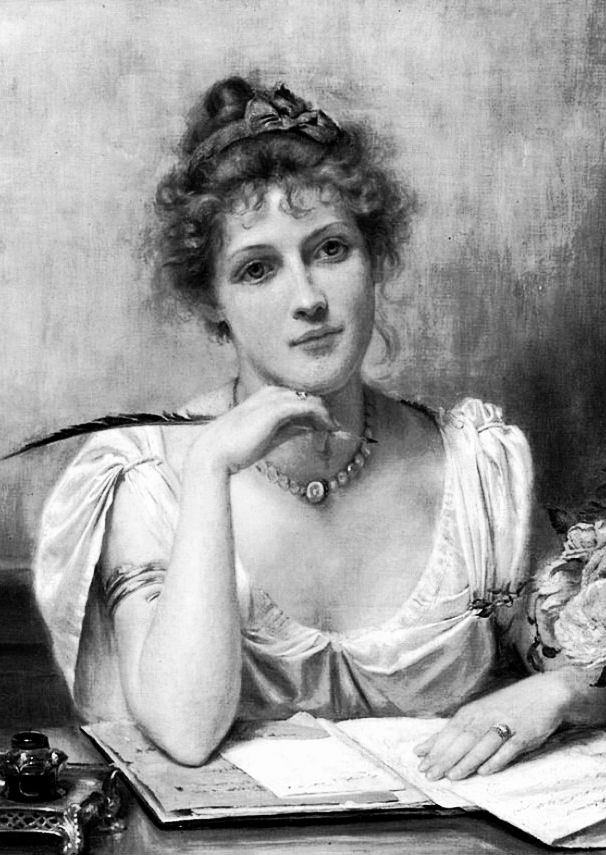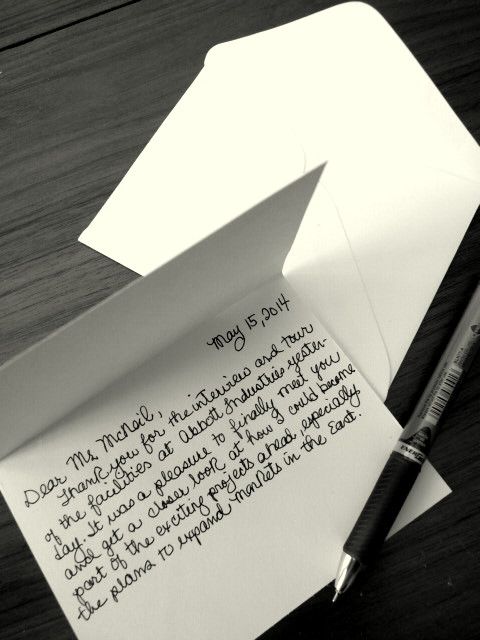Although many job seekers don’t realize it, enthusiasm is one trait that hiring managers look for in an applicant. And the best part is that you can easily demonstrate this trait with a simple gesture – writing the post-interview thank you letter.
Showing some enthusiasm — for the position, for the company, for the industry, for the projects you discussed during an interview — makes your interview score goes up.
This little letter packs plenty of potential. It does all these things —
- Gives you a chance to express your gratitude to the interviewer for considering you as a hire
- Shows you understand common business etiquette
- Reminds the interviewer of your interest and qualifications
- Offers you the chance to correct any interview mistakes you feel you made
- Lets you gracefully add anything you think was omitted during your discussions
- Helps set you apart from the other applicants
- Displays your writing and communication skills
- Keeps your foot in the door if you don’t qualify for this particular position with the company
Should I use Snail Mail or eMail?
Although email has taken over business communications, there’s still a place for a good old fashioned, handwritten thank you note.
Your other options are a hard copy typed, or the ubiquitous email. You can base your decision on the nature of the company and your interview, and the time factor.
The written thank you note is appropriate if you don’t have much to say, when your handwriting is very good, and when you can send it the same day or early the next day.
Email is appropriate when emailing has been your usual means of contact with the interviewer. Or, your interviewer may have expressed a preference for email. Or you know that the person is traveling and will not have easy access to snail mail.
Email is also acceptable for most jobs in the tech industry, and in less formal companies. If emailing, you can use something like, “Great to meet you today” or “Thanks for meeting with me yesterday.” Send your email from a professional email address, not your work email address and not cutiepie38@hotmail.com.
What Makes a Memorable Letter?
Whichever format you decide to use, there are qualities that can’t be ignored
Perfection. Make sure there are no typos, grammatical errors, or name misspellings. Write your first draft on the computer so you can spell-check it.
Personal touch. It should never resemble a generic letter. The content should be specific enough that it’s obvious you took the time to write it directly for that particular interviewer. Ideally, you’ll reference something new that you learned during your meeting.
Immediacy. You should never have to write, “I’m sorry it’s taken this long for me to get back to you.” That’s just insulting, and it makes you look like you don’t give importance to the job and don’t manage your time well. Just be quick about this task!
Brevity. The best post-interview thank you notes are brief and to the point. Limit yourself to two or three short paragraphs.
What Do I Write?
To start, address the person by name. Write Ms. or Mr. instead of first names. If the interviewer suggested you to use a first name during your meeting, then it’s okay to do the same in the letter.
Thank her or him for the time and attention given you. It’s a good idea to mention the position you are applying for. Use “you” more than “I.” For example, write “Thank you for the opportunity to meet with you today to discuss your opening for a sales consultant,” rather than “I want to thank you for interviewing me for …”
If you are sending multiple letters to different people, which you’ll need to do if you met with more than one person or were interviewed by a panel, make each letter unique. If possible, mention a particular point that would resonate with each individual.
Next, mention one point from the interview that casts you in a favorable light, or that you are especially interested in. Show your enthusiasm.
If necessary, now is your chance to slip in a do-over. If you think you fumbled an interview question, you might write, “I wanted to clarify my position on marketing your products to Afghanastan.” Don’t take an apologetic tone, but be specific. “I would be happy to forward you a copy of the media plan I used to increase sales in Belgium.”
Finally, confirm what the next step is. “I look forward to hearing from you concerning your hiring decision,” lets them know the ball’s in their court and clarifies that you understand your role is to wait. Another possibility is something like, “I’ll call you at the end of next week, as you suggested.”
If you need some nitty-gritty basics on how to write a thank you note Wikihow has some helpful pointers.
Every step of the interview process is an opportunity to make an impression. You’ll need to put forth your best efforts from beginning to end if you want to stand out from the other candidates. The post-interview thank you letter is one easy effort to make.
Remember that I send a free copy of my Résumé to Payday ebook to each of my résumé clients. Is it time for your résumé to get a makeover?

